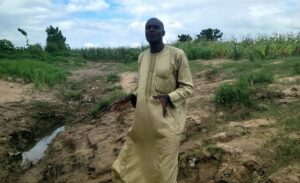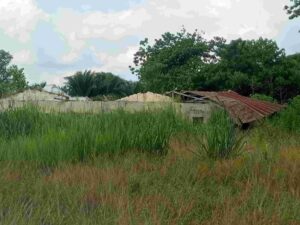Borno and Yobe States, located in northeastern Nigeria, are repositories of rich cultural heritage that spans centuries. This heritage, woven into the fabric of daily life, is under threat from various challenges, including conflict, climate change, and resource limitations.
In the face of these adversities, women have emerged as the backbone of cultural preservation, while media platforms have played a crucial role in amplifying their voices and initiatives. This special report by Kanempress Digital Hub and Partners delves into the multifaceted roles of women and media in safeguarding the cultural legacy of Borno and Yobe States.
Kanempress Digital Hub, a leading organisation in the region, has been at the forefront of promoting cultural heritage preservation through digital initiatives and community engagement. Under the visionary leadership of its President and Founder, Zannah Ibrahim Mustapha, Kanempress has successfully trained more than 2,000 women across Lake Chad region of Borno and Yobe States.
Women in Borno and Yobe States have long been the custodians of cultural knowledge, passing down traditions, rituals, and practices from one generation to the next. Amina Massa, a local elderly woman from Borno, emphasises the importance of this role.
Women’s contributions extend beyond mere preservation; they actively transmit cultural practices, ensuring the continuity of cultural identity. Women in the region are also repositories of invaluable local knowledge, including traditional medicine, crafts, culinary arts, and indigenous agricultural techniques.
Fatima Abba Sanda, a skilled herbalist from Marama, explains, “Our knowledge of plants is not just about medicine; it’s about sustaining our way of life.” This understanding of local flora not only sustains traditional medicine but also informs sustainable agricultural practices.
Women’s participation in cultural crafts and arts is another crucial aspect of their contribution to heritage preservation. Through their involvement in weaving, pottery, beadwork, and other artistic expressions, women define and shape the region’s cultural heritage.
Media platforms have played a significant role in empowering women and amplifying their voices and initiatives in cultural heritage preservation. Organisations like BRTV, YBC, Sahel Radio, Kanempress, and Radio Ndarason International have served as audio-visual archives.
According to Abubakar Yusuf, a media producer, emphasises the importance of focusing on women’s narratives, stating, “We focus on women’s narratives because they are often overlooked. Their stories are powerful and transformative.”
By showcasing women’s stories, media platforms have not only raised awareness about their contributions but have also inspired and empowered other women to engage in cultural preservation efforts.
Rebecca Kwala Bitrus, the Director of Tourism at the Ministry of Commerce, Industry and Tourism, emphasises the importance of women’s involvement in cultural heritage preservation. “Women are the custodians of our cultural traditions.
Despite the vital roles played by women and media in safeguarding cultural heritage, Borno and Yobe States face significant challenges. Ongoing conflicts in the region pose a serious threat to cultural heritage sites.
Climate change also poses a significant challenge to cultural heritage preservation in the region. Rising temperatures, desertification, and water scarcity affect the preservation of historical sites.
However, amidst these challenges, there are also opportunities for empowerment. Community-based approaches involving women, local communities, and NGOs can enhance preservation efforts.
Mr. Mamza Ralpha, the Curator of the National Museum and Monument and the custodian of the Dufuna Canoe revealed that the Canoe discovered in Yobe State, is the oldest in Africa and the third oldest in the world.
Meanwhile, the Shehu’s Palace in Borno State is a cultural landmark that represents the architectural and historical significance of the Kanem-Borno Empire. Women actively promote and preserve this hub of administrative and cultural activities.
Kanempress Digital Hub and Partners have made significant strides in cultural preservation in Borno and Yobe States. Through their initiatives, they have successfully trained over 2,000 women.
To effectively safeguard the cultural heritage of Borno and Yobe States, a multifaceted approach is necessary. Capacity building through training and workshops can strengthen women’s skills.
Fostering public-private partnerships can provide the necessary funding and resources for preservation projects. Corporate social responsibility initiatives focused on heritage can also contribute.
The cultural heritage of Borno and Yobe States is a testament to the resilience and interconnectedness of communities. Women, as the custodians of cultural knowledge and artistry, have played a vital role.
By empowering women, leveraging media, and fostering collaborative efforts, Kanempress Digital Hub and Partners aim to ensure that the vibrant tapestry of cultural heritage remains intact.
On the one hand, the Shehu’s Palace in Borno State stands as a testament to the rich cultural legacy of the Kanem-Borno Empire. Women have played a pivotal role in preserving this iconic landmark.
Mrs. Husna Ibrahim, the Director of Art and Culture in Damaturu, shares her perspective on the importance of women’s involvement in cultural heritage preservation. “Women are the backbone of our cultural identity.”
Community-based initiatives have been instrumental in promoting cultural heritage preservation. Women have taken the lead in organising cultural events and tour.
Rebecca Kwala Bitrus emphasises the importance of media engagement. “Media platforms can showcase the incredible work women are doing in preserving our heritage.”
Dr. Maria Okoro warns of the devastating impact of climate change on cultural heritage sites. “Climate change is not just an environmental issue; it’s a cultural crisis.”
Despite challenges, women remain committed to cultural preservation. Mari Adam, a community leader, shares, “Every day is a struggle. We have to be brave to protect what is ours.”
Kanempress Digital Hub and Partners will continue to support women-led initiatives in cultural heritage preservation. By empowering women and leveraging media, we can ensure the long-term preservation of our cultural legacy.
The cultural heritage of Borno and Yobe States is a source of pride and resilience. By working together, we can safeguard this precious legacy for future generations.
Through collaborative efforts, we can overcome challenges and create opportunities for cultural preservation and economic empowerment.
The future of our cultural heritage depends on our collective action. Let us join forces to protect and promote the rich cultural legacy of Borno and Yobe States.
By doing so, we honour the women who have tirelessly preserved our cultural traditions and ensure a brighter future for generations to come.
This special report by Kanempress Digital Hub and Partners highlights the critical role of women and media in cultural heritage preservation.



